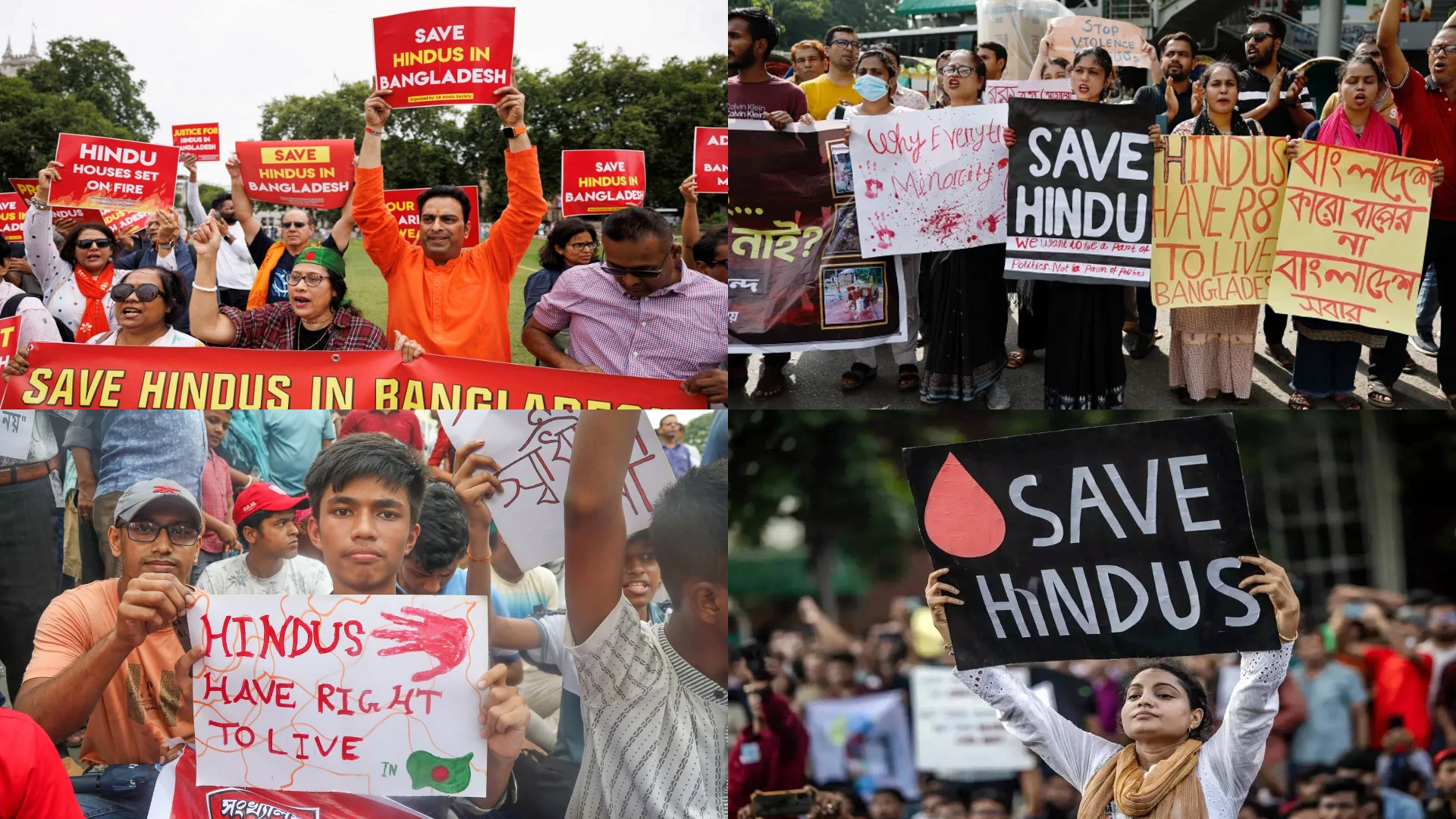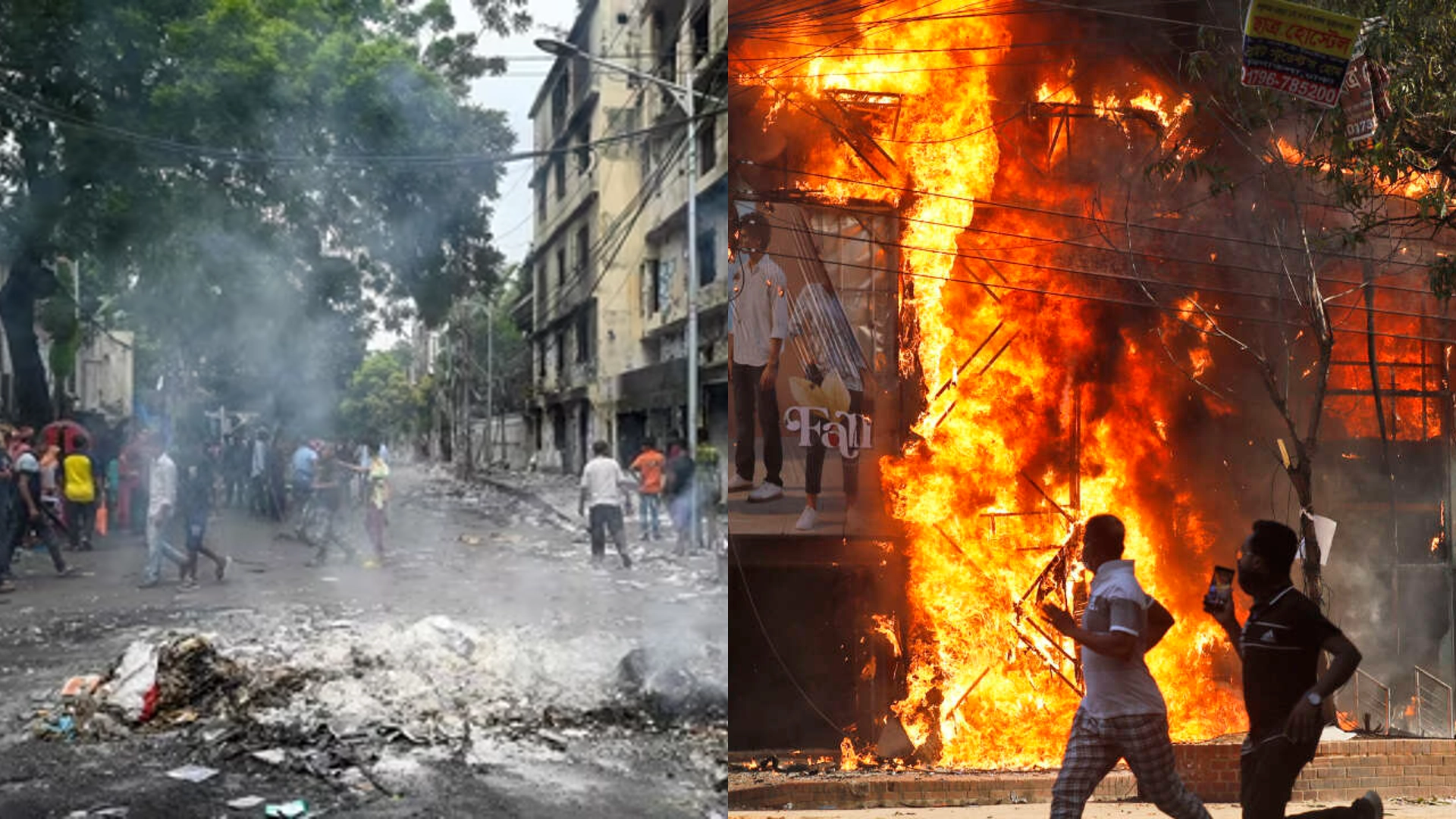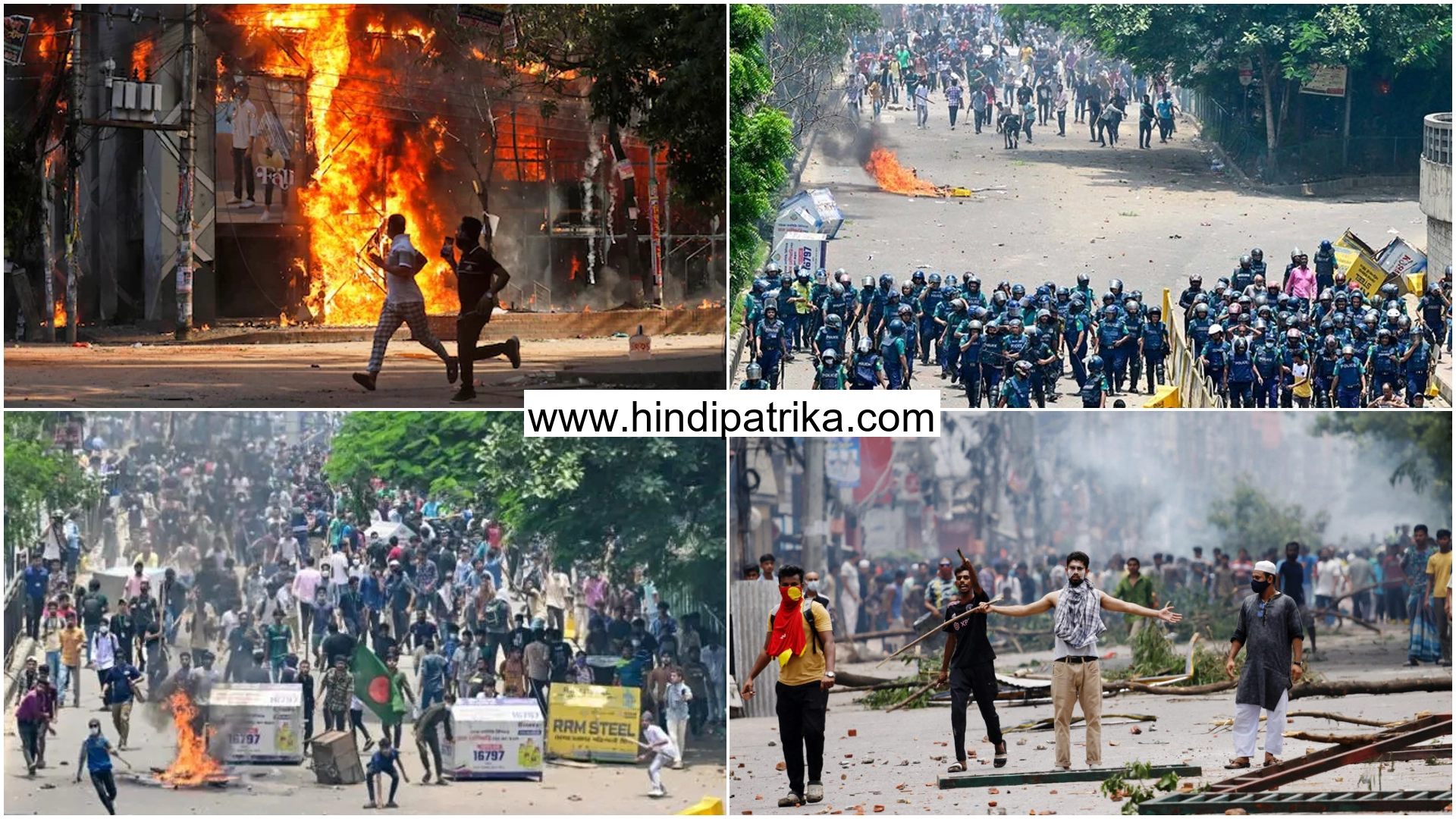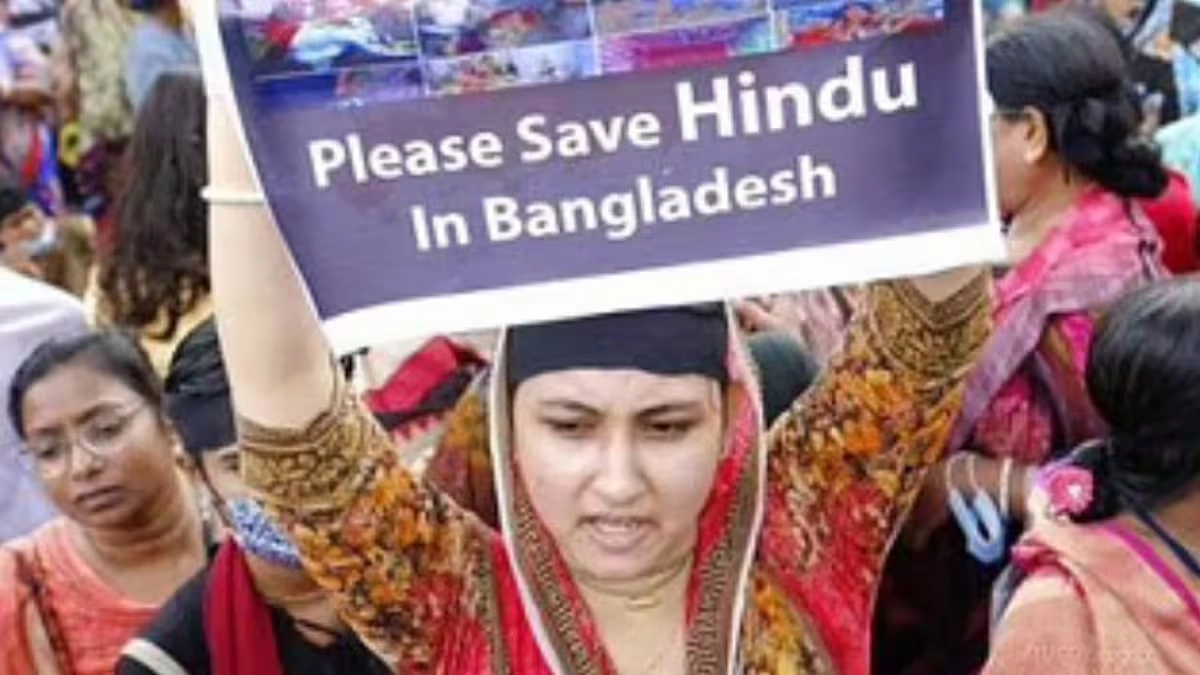
The recent situation in Bangladesh has raised significant concerns about the safety of the Hindu minority in the country. Since the resignation of Sheikh Hasina, who had been seen as a protector of minority rights, reports of violence against Hindus have escalated. This has included attacks on homes, businesses, and temples, leading to widespread fear and insecurity among the Hindu community.
As India approaches its Independence Day, a significant portion of the nation is grappling with a moral dilemma. The safety and security of Hindus in Bangladesh have come under severe threat following the resignation of former Prime Minister Sheikh Hasina, leading to widespread calls for a boycott of Independence Day celebrations in India. This article delves into the growing concern for Hindus in Bangladesh, the historical context of their persecution, and the mounting calls for action from India, particularly from Prime Minister Narendra Modi.
The plight of Hindus in Bangladesh is not a new phenomenon. The Hindu population, which once constituted a significant minority in what was then East Pakistan, has steadily declined over the decades. The partition of India in 1947 and the subsequent creation of Pakistan, followed by the 1971 Liberation War of Bangladesh, were pivotal moments that saw widespread violence against Hindus. The Liberation War, in particular, resulted in the displacement and death of millions, with Hindus being disproportionately targeted.

In the decades that followed, the Hindu community in Bangladesh continued to face discrimination, violence, and systemic marginalization. Land grabbing, forced conversions, and attacks on temples and religious sites became disturbingly common. Despite the country’s official commitment to secularism, the Hindu minority has often found itself at the mercy of extremist elements and political instability.
Sheikh Hasina, who served as the Prime Minister of Bangladesh for several terms, was seen by many as a guardian of minority rights, particularly for the Hindu community. Her leadership provided a semblance of security for Hindus, as she took a firm stand against religious extremism and sought to maintain the secular fabric of the nation. However, her resignation earlier this year has plunged the Hindu community into uncertainty and fear.
The abrupt exit of Hasina has emboldened Islamist forces in the country, leading to a sharp increase in violence against Hindus. Reports of attacks on Hindu homes, businesses, and temples have surged, with many fearing that the situation will only deteriorate further without strong leadership.

Since Hasina’s resignation, there have been numerous reports of violence against Hindus in Bangladesh. Temples have been desecrated, homes looted, and businesses destroyed. In some cases, Hindus have been forced to flee their homes, seeking refuge in neighboring India. The violence has been described as “systematic,” with targeted attacks aimed at driving Hindus out of their ancestral lands.
One of the most harrowing accounts comes from a 12th-standard Hindu girl who wrote a letter to Indian Prime Minister Narendra Modi, pleading for intervention. In her letter, she described the “unimaginable torture” that Hindus in Bangladesh are facing, urging Modi to take immediate action to save her community. The letter, which was shared widely on social media, has become a rallying cry for those calling for India to take a stand against the atrocities in Bangladesh.
The violence against Hindus in Bangladesh has been exacerbated by the spread of misinformation on social media. False reports, often originating from social media users in India, have claimed that hundreds of Hindus have been killed, temples burned, and women raped. These reports, while exaggerated, have contributed to a growing sense of panic and fear within the Hindu community.

However, it is essential to distinguish between the actual incidents of violence and the exaggerated claims circulating online. While the situation is indeed dire, with numerous documented cases of attacks on Hindus, the spread of misinformation has complicated efforts to address the issue effectively.
In response to the ongoing violence, there have been growing calls within India to boycott Independence Day celebrations this year. Those advocating for the boycott argue that India, as the world’s largest democracy and a nation with a significant Hindu population, has a moral responsibility to stand up for Hindus in Bangladesh. They believe that by boycotting Independence Day, they can send a powerful message to the Indian government and the international community that the atrocities in Bangladesh cannot be ignored.
The boycott is not just a symbolic gesture; it is a call to action. Advocates are urging the Indian government, particularly Prime Minister Narendra Modi, to take concrete steps to address the situation. This could include diplomatic pressure on the Bangladeshi government, raising the issue at international forums, and providing asylum to Hindus fleeing persecution.
The Indian government’s response to the situation in Bangladesh has been cautious so far. While there have been statements of concern, many believe that more decisive action is needed. India shares a long and complicated history with Bangladesh, and any intervention must be carefully calibrated to avoid further escalation of tensions.
However, the pressure on the Indian government is mounting. With the situation in Bangladesh deteriorating and the Hindu community in India expressing growing outrage, there is a sense that India cannot afford to remain passive. The government must balance its diplomatic relations with Bangladesh with its responsibility to protect Hindus, both within its borders and beyond.
The violence against Hindus in Bangladesh has broader implications for the region. It highlights the fragility of minority rights in South Asia and the challenges of maintaining secularism in the face of rising religious extremism. It also raises questions about the role of social media in exacerbating communal tensions and the responsibilities of governments in addressing misinformation.
For India, the situation presents a complex challenge. As a nation with a significant Hindu population and a history of advocating for minority rights, India cannot afford to ignore the plight of Hindus in Bangladesh. However, any action must be taken with caution, considering the potential diplomatic fallout and the broader regional implications.

As India prepares to celebrate its Independence Day, the situation in Bangladesh serves as a stark reminder of the ongoing struggles for freedom and security faced by many in the region. The call to boycott Independence Day is not just a protest against the violence in Bangladesh; it is a demand for action, justice, and the protection of minority rights.
The Indian government, particularly Prime Minister Narendra Modi, is being called upon to take a stand. Whether through diplomatic channels, international forums, or direct intervention, India must show that it will not stand by as Hindus in Bangladesh face persecution.
The eyes of the world are on India, and the decisions made in the coming days will have lasting implications for the region and the principles of justice and human rights that India holds dear.

